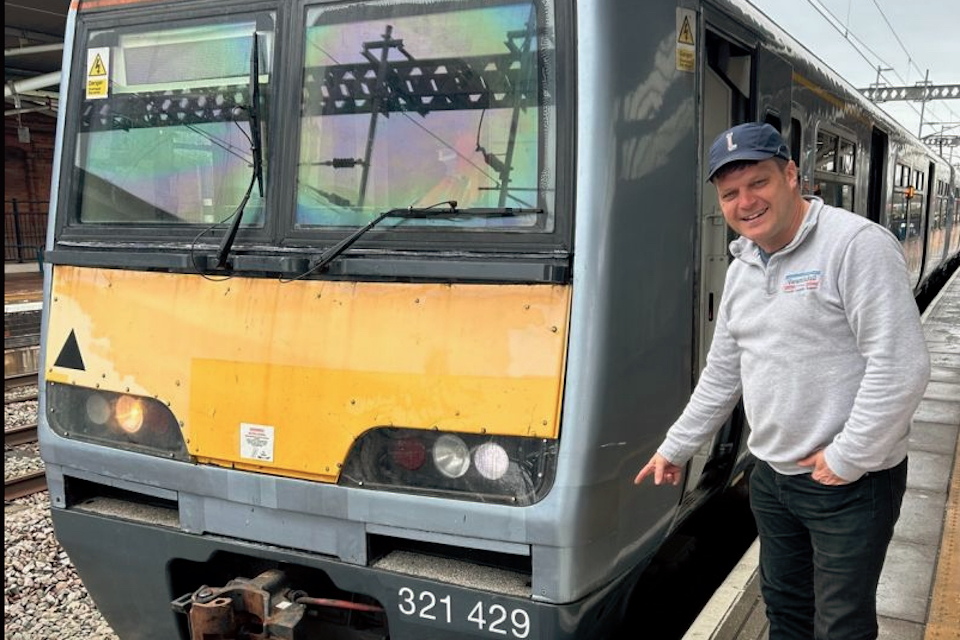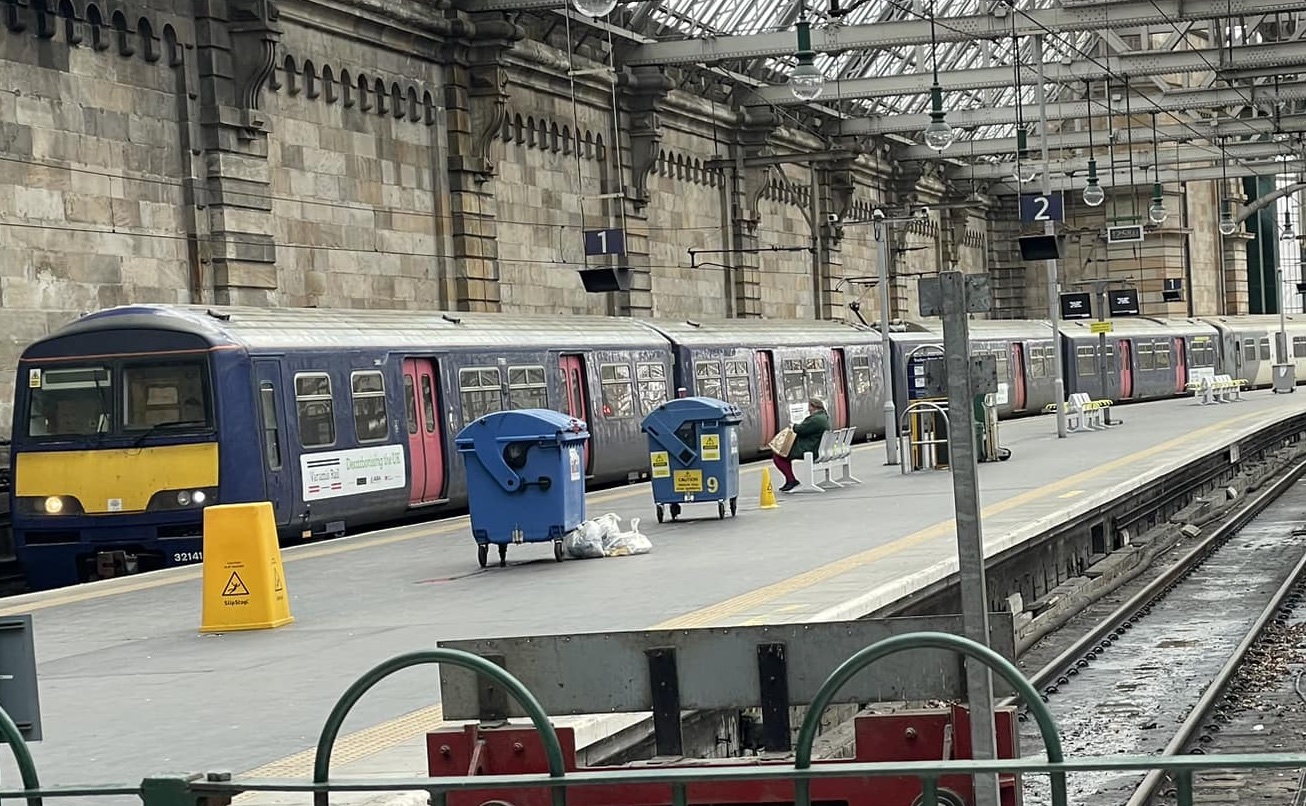The UK express logistics boom continues. Independent carrier Varamis Rail has unveiled its fifth train, only weeks after adding a fourth electric multiple unit to its uniform fleet of repurposed passenger trains. Varamis Rail currently runs an overnight service, carrying parcels traffic, between Birmingham and Glasgow.
The announcement of a fifth unit for the Varamis fleet comes ahead of an invitational but very public event at London’s Liverpool Street station. The combination of the fleet augmentation and the industry reception has fuelled speculation that the carrier could launch an Anglo-Scottish service from a London terminal.
High-speed freight train for the middle mile
Founder Phil Read, who self-depreciatingly describes himself as “that ‘little guy’ that started his own train company”, was enthusiastic about taking delivery of a fifth Class 321, four-car electric multiple unit. Pictured at Rugby, he described the initiative as an unprecedented solution. “[This is] the low emissions, cost-efficient, and high-speed freight train for the middle mile”, he said.

The trains were originally built for British Rail in the late 1980s and early 1990s. They were the mainstay of several outer suburban and interurban services around London and the North of England. Some refurbished units remain in passenger service on busy commuter lines around Glasgow. The units operated by Varamis have been stripped of all passenger adornments to provide unrestricted load space.
Sharp rise in parcel traffic
Varamis has been consistently vocal in its support of a resurgent express logistics sector on the UK railway network. Historically called parcel trains and mail trains, the concept of dedicated logistics by rail is nothing new. Such trains were once a common sight on the network, albeit largely confined to the overnight hours. However, lack of inertia, privatisation and competitive road-freight alternatives largely killed off the sector in the 1990s.

Other operators have carried parcel traffic in their own trains. Notably, the Royal Mail has a fleet of purpose-built electric multiple units capable of overhead wire and third rail power. The falling number of letters posted has been mirrored by a sharp rise in parcels traffic, suggesting there is a continued future for this units. Other solutions include the successful operation of “parcels as passengers” on scheduled services – a concept currently championed by InterCity RailFreight.
Sustainable future isn’t just an option
The Varamis website claims a launch of a five nights a week service into the heart of London. Although details are not given, there is a graphic suggesting the service could be an extension of its pioneering Glasgow – Birmingham run. The company’s promotional material certainly takes note of the stringent emissions and road congestion restrictions in London.
“In a world that’s progressively mindful of its environmental footprint, pioneering a sustainable future isn’t just an option; it’s an imperative”, says Phil Read. It’s about time [the] supply chain embraced innovation that not only lowers carbon emissions but also slashes costs and boosts efficiency.” The invitational event at Liverpool Street (13 March) is open to the supply chain to see for themselves. It may also be further inspiration for those waiting in the wings, intent on entering the express logistics market.